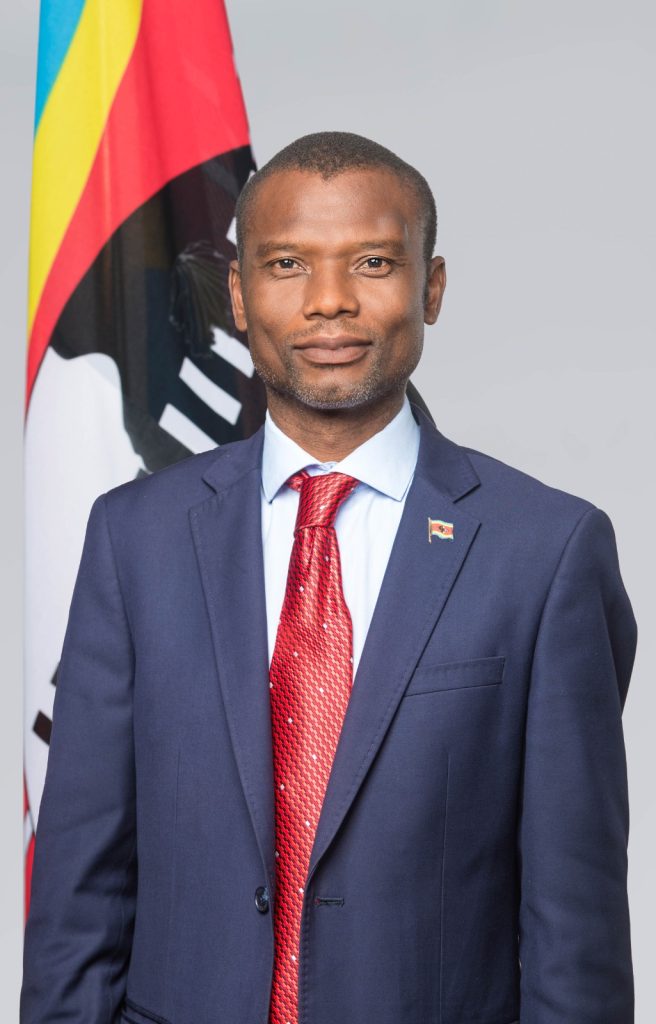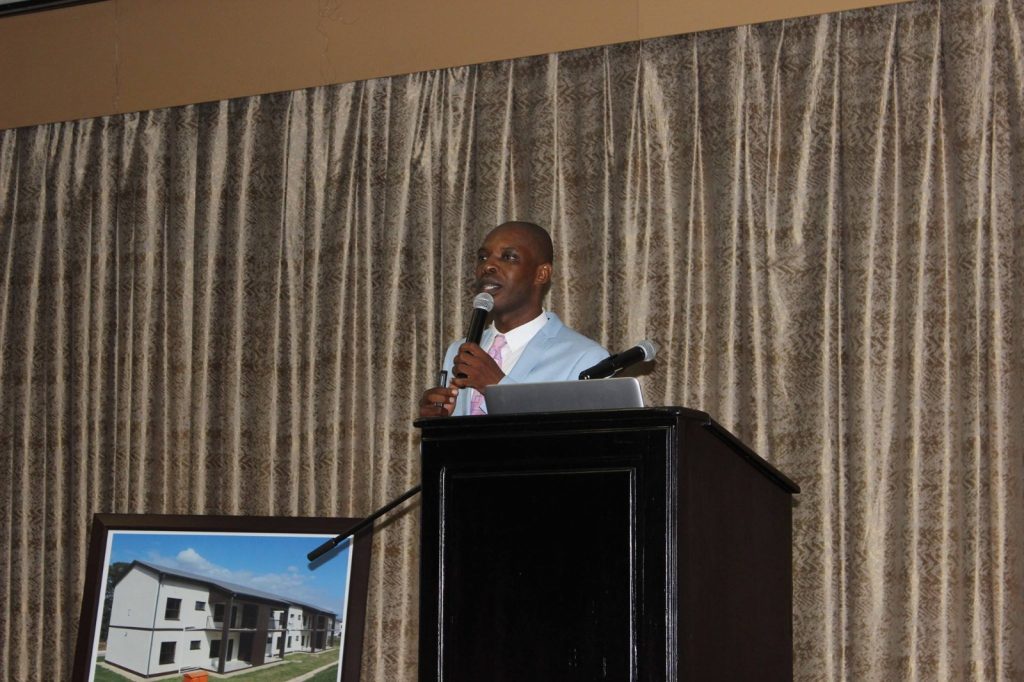
By Phiwa Sikhondze
The operationalization of the Sectional Titles Act in April 2022 was meant to transform the local property landscape. The Act was designed to provide new pathways to property ownership, particularly benefiting first-time homebuyers and the middle class. By allowing for the individual ownership of units within multi-unit properties, such as apartment buildings, the Act sought to address the challenges of scarce land and high property prices in urban areas.
Despite its potential to make property ownership more accessible and efficient, the Act remains largely underutilized. To date, the Ministry of Housing and Urban Development (MHUD) has received only one application related to the Sectional Titles Act, a figure that highlights the gap between legislative promise and practical implementation.
The Sectional Titles Act was conceived with a straightforward and effective model: instead of purchasing an entire piece of land and constructing a property on it, individuals could buy a specific unit within a larger complex. Ownership of this unit is outright, while common areas, such as gardens, staircases, and parking lots, are jointly owned by all unit owners. This shared ownership model has been successfully implemented in many countries around the world, providing an affordable solution for homeownership in densely populated urban environments.
Despite the benefits that come with Sectional Title, nothing is happening in the space. Bhekithemba Matsebula, the Director of Human Settlements Authority (HSA) at the MHUD says the challenge is the market, not the ministry. He expressed frustration over the lack of applications.

“As a Ministry, we have been eagerly waiting to receive applications from property developers since the Act was passed into law. The Ministry has been prepared to facilitate the process, but unfortunately, we have received only one application to date. This inactivity is not due to any inefficiency on the part of the Ministry but rather reflects broader issues within the sector,” Matsebula stated.
Our efforts to get a comment from the Registrar of Deeds, Khulile Sikhondze proved futile, as she stated that she is not authorized to comment, even though she is the Chairperson of the Sectional Titles Regulation Board.
According to a well-placed source from the MHUD, the slow uptake of the Sectional Titles Act is primarily due to the shortage of qualified local Land Surveyors and Architects. The preparation and finalization of sectional plans require specialized professionals, and the lack of certified Eswatini Land Surveyors has created a bottleneck in the implementation process.
This shortage has prevented the Act from reaching its full potential, as developers and stakeholders face significant challenges without the necessary professional support. The Sectional Title Examinations Committee, gazetted on June 26, 2020, by the government of the Kingdom of Eswatini, specifies that Land Surveyors and Architects are the only professionals responsible for preparing Sectional Plans in the country.
When asked for comment on the lack of capacity Matsebula said that it is not true that the country lacks the requisite Professionals to prepare Sectional title development schemes.
“The country has several Land Surveyors and Architects who are knowledgeable on the subject. To kick start the new era of sectional titles in the country, the Ministry identified 3 Sectional titles professionals and exempted them from sitting for the examinations as stipulated in the Sectional Titles Regulations. The rationale was for them to commence with the preparations of sectional title development schemes. Their term of office was fixed at 12 months. This was an interim measure by the Ministry to allow interested developers to apply for sectional title developments. Unfortunately, their term of office elapsed without receiving a single application. Furthermore, the Ministry extended their term of office from 1st May to 31st October 2023, still not a single application was submitted.”
“It was only after the expiry of the extension that a single application was received prepared by one of the 3 Professionals. Unfortunately, it could not be tabled before the Sectional Titles Regulations Board since the term of office had expired. To date, the Sectional Titles Examinations Committee recently appointed by the Honourable Minister is working on the appointment of an Examiner to set the syllabus and exams for the respective Professionals (Land Surveyors and Architects) and a Moderator to moderate the marks provided by the Examiner.” he said.

Prominent property developers who chose to remain anonymous expressed frustration with the slow pace of development under the Sectional Titles Act. “What is most frustrating about this is the silence, why is the Ministry quiet? One of their functions is to market and educate emaSwati on the Act. We are frustrated by the entire situation and are urging the MHUD to provide us with clear guidance on how to proceed. It has been two years but nothing is happening. As it stands, there are property developers who have developed sectional title units, but do not know what to do with them”.
Disputing these allegations Matsebula, said “As a Ministry, we are not aware of developers that are struggling to sell their properties developed for sectional titles. Our role as Eswatini Government is to facilitate not to frustrate development.
“We facilitate development by making sure that the requisite legislative framework is in place for developers (both public and private) to actively participate. In this instance, the Eswatini Government through the MHUD ensured that the piece of legislation is in place for developers to dispose of their properties that meet the requirements of sectional title developments. Whether a developer decides to sell or not, that is optional. Ultimately, the Eswatini government has laid the foundation, developers are expected to make the necessary applications when a need arises.” he said.
The problem may be more market-related than a lack of administrative inefficiency, as articulated by the Chief Executive Officer of Eswatini Housing Board, Mduduzi Dlamini in a previous interview with this publication. “The Act is operational in the country but what is required is for stakeholders to find the business case. The challenge with the existing stock in the market is that the properties do not owe anything, yet they provide good cash flow every month for owners. As a result, there isn’t an incentive to sell those properties. The second challenge we face is the cost of development. When you factor in costs such as electricity, water general infrastructure costs, and other input costs then development costs shoot up. In essence, the financial incentive to develop sectional title units is not there.”
When asked how this challenge can be remedied the EHB CEO states that government must step in. “The government needs to provide the EHB with sovereign guarantees so we can go outside of the country and look for funding with low interest rates so that we can develop sectional title units that emaSwati can afford. The private sector just does not have the financial incentive.”
Meanwhile, Business Eswatini, the apex body representing the private sector, has expressed optimism about the recent appointment of the Sectional Titles Regulation Board and Sectional Titles Examination Committee. “The real estate sector’s contribution to the GDP has been subdued over the years. However, the implementation of sectional title ownership is set to transform the sector’s fortunes.” The organization believes that the Act could unlock significant economic benefits by offering affordable housing solutions and attracting investment.

Moreover, BE has emphasized the importance of addressing peri-urban settlements—areas on the outskirts of urban centers that present unique legal and regulatory challenges. Clarifying the status of these settlements could facilitate broader adoption of sectional title ownership, particularly in regions where traditional property ownership models are not feasible.
If this is indeed a market problem as alleged by the Ministry and EHB’s CEO then perhaps the answer lies with the government, particularly the country’s Retirement Funds, being Eswatini National Provident Fund & the Public Service Pensions Fund. Appolo Maphalala, the Minister of the aforementioned has advised EHB to use funding from the country’s two biggest Retirement Funds, with the government backing that funding through guarantees. It is also comforting that both Retirement Funds are on record stating that they will venture into the Sectional Titles space, which will hopefully finally lead to emaSwati affording to purchase and own property in the country.